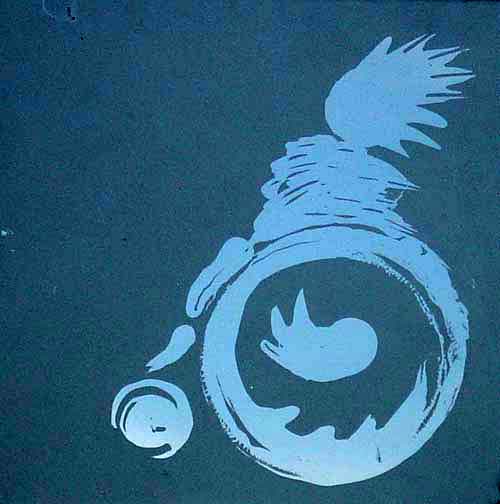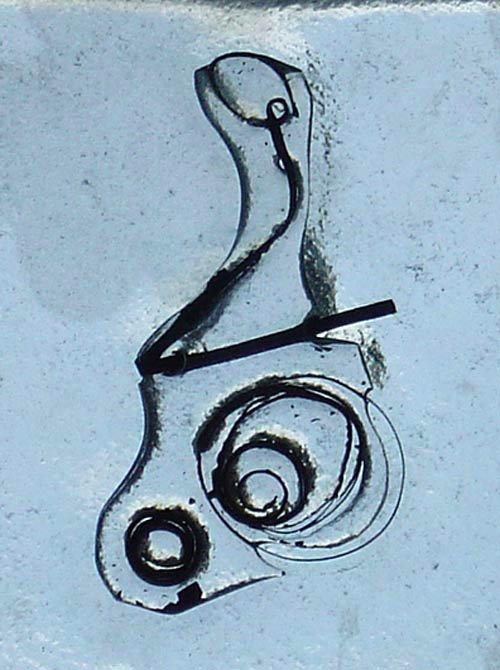Are You A Disabled Artist? AYADA
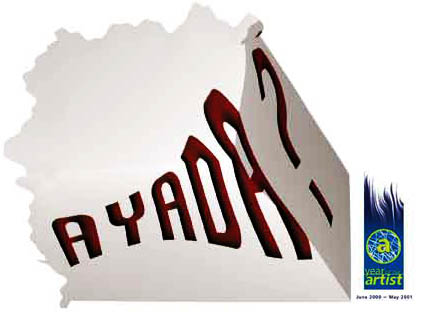
Are You A Disabled Artist? AYADA
AYADA Events & feedback
Outside Centre Project
The background to Are You A Disabled Artist? is an historic lack of provision for disabled people. Such lack of provision is through access requirements not been met or an absence of inclusive practice.
All the organisations were engaged in and supported the task of turning this around. Methodology and models of good practice offered by AYADA included:
-
employment of disabled artists
understanding of access requirements
- beyond physical access
- dealing with hidden impairments and living with illness
-
the meaning of the terms inclusive and integration
-What is an inclusive event
-
disability equality training & Social Model of Disability*
- within context of participatory and collaborative projects
- not replicating social services approach to delivering a service to Disabled People
- not grouping Disabled People by impairment
-
Disability Discrimination Act specifically part 111for service providers
new audience development
- achieving physical access does not directly relate to an increase in disabled users
-
Web accessibility
-
presentation of disability culture
-screening of collaborative work
-screening of professional artists work
* social model of disability
This social model of disability says that the problems disabled people face (for example, lack of access to buildings, transport or employment) are not caused by their physical or mental conditions such as their inability to walk, slowness in understanding and so on but by the social and environmental structures that are not adapted to their needs and cause unnecessary restrictions for disabled people.
AYADA: researching disabled artists use of digital training by arts organisation
"Are You a Disabled Artist? (AYADA.net) " was touring project to 12 venues undertaken by disabled artists Outside Centre (Dr PA Darke, Mr A. McLean, Mr T Mustoe & Ms A Whitehurst) and supported through Year of the Artist.
In the legacy of Photo 98 the project sought to contact and work with disabled artists and Disabled People using resourced arts centre’s and digital and media based training providers in Yorkshire and West Midlands.
The application was made at a time when the Arts Council were profiling disabled artists and technology, notably the "Access Denied Conference," (where Outside Centre critically acclaimed work) and the publication, "digitising disability" 16,000 of these were circulated through Artist Newsletter (all Outside Centre artists were represented in this publication) .
Initial research and enquires led to the project transforming into a training opportunity for Disabled People and artists as well as the organisations themselves.
AYADA was a training opportunity
for:
-
Disabled People
- disabled artists
- as well as arts practitioners
- arts organisers
- Arts education & project managers
For Disabled People it offered
a "where too from here" for disabled groups and disabled individuals engaged in courses and arts projects by introducing disability culture, networks and opportunities
Each organisation was different. AYADA aimed to be responsive to need, rather than a fixed project, touring. In this way the organisation and the artists from Outside Centre were able to find a context for the work.
Organisations on the whole responded very well to the project, recognising the rich perspective which was offered, particularly gaining from ways of developing inclusive practise and disabled audiences. In general we increased understanding, knowledge and perception of disability culture.
Outside centre put forward that facilitating disability culture is a way of building users and audiences and that physical access alone did not create disabled users or audiences
With Regard to Education and Training two models were presented
The first was about inclusive practice: specifically giving disabled people equal access to training and services. Dealing with the idea that for disabled people to attend a workshop it is necessary for their access requirements to be planed for, understood and met.
The second was about employing disabled artists to run workshops with Disabled people as an example of good practice and to facilitate disability culture and i disabled audiences's for a venue
Outside centre on the tour presented film and video by professional disabled artists as an example of disability culture as well education work led by disabled artists working in equal partnership with disabled people.
Findings of the research into the use of digital arts resources by Disabled People and disabled artists
A conclusion from this research by Outside Centre which is relevant to Digital Arts Organisations;and policy about inclusion generally, in relationship to arts provision:
disabled people and disabled artists are greatly under using resources and services currently available to them.
This is because of a whole wealth of historic reasons amounting to disabled peoples exclusion as well as a lack of understanding on behalf of disabled people about communicating to service providers about their access requirements.
Many disabled people still identifying themselves through an individual model of disability mixing the word disabled with their impairment (I have …. for example) placing emphasis on internal factors for the feeling of been incapable and thereby creating a sense of been a burden and troubling service providers rather than a social model which interchanges the word disabled with discrimination, difference and inclusion, placing emphasis on external factors for the feeling of been incapable for example it’s steps that make you feel incapable not the fact you use a wheelchair.
Outside Centre on the "Are You a Disabled Artist?" project held surgeries with disabled students studying art at BA level, and artists some of whom identified themselves as disabled and some who were working in the arts professionally but do not choose to say they are disabled.
After discussions with these artists it was revealed that the artists who had impairments failed to speak to their temporary employers (arts organisations) about access requirements, many talked about the competitive and personally demanding environment in the arts. A deaf student was asked to consider if it was right that she should organise her owner signer for meetings or whether the arts organisation should, (few had any database for signers) it was also discussed who should meet this cost?
Why disabled people and artists under use services is a user issue (Disabled People and disabled artists) as well as an issue for arts organisations.
Arts organisations need to be further supported and facilitated financially to develop disability arts
specifically under part 111 of the Disability Discrimination act
Without continued support very real access requirements are not been met, and as a result Disabled People’s poor expectation of training is been reinforced.
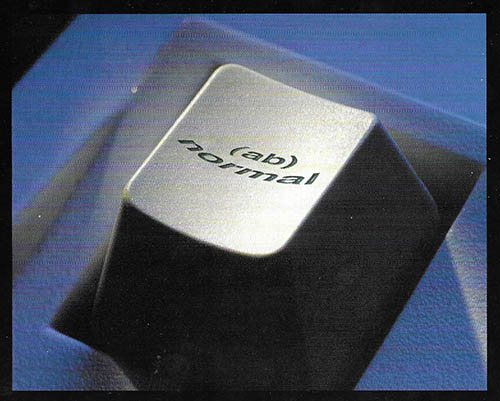
The Key by Paul Darke
Some comments from feedback forms:
Please add any further comments about the screening
- Eye opening
- I thought that the films were thought-provoking. luved Ann Whitehurst - denial & Simon Mckeon - School - both were very thought provoking
- I found the screening and presentation a learning experience I've come away with the
- interesting
About the presentation
- nicely put together, a lot of interesting feedback
- Why Interesting and very good, most informative, ( Yorkshire arts space )
- Alan handled the broad range of interests/participants very well (Site Gallery)
- Good certainly felt I was beginning to consider issues from a new position.
- very valuable to myself and unusually well formatted
- The presenter did give everyone an opportunity to comments and discuss issues
- the discussion informed and interested me and I want to learn more
- very interesting and Alan made it a valuable experience and open my eyes to different views. I enjoyed the videos
- Interesting, but difficult to encompass the full range of issues in two hours
- Rather large ideas presented, which everyone agreed with but needed help getting there
- useful
About disability art
-
There needs to be more exposure of Disability Arts to the wider public
-
Some very useful contacts/website given
-
I am aware I need to continue my education and awareness
- I find it amazing how disabled people have the courage and knowledge to become to brilliant artists for
- Ideas, visually great. Very great thought processes
- relevent if to
- I think, that this is definitely an area at the art scene, that needs promoting
- I have gained a lot
Would you go to the website
- I have visited the site recently, and didn't find it very useful. However, it developed to include, some of the content discussed in workshop, certainly go back in the future.
- yes
- yes
- yes
- yes
- yes
- Yes definitely
- yes
Will you consider using your local digital arts organisation for training and as an introduction to computers and the Internet
- Yes I would be very interested
- Possibly and will pass on information to other artists and trainees
- yes
- yes
- yes
- yes
- yes
Will you consider the using the library for Internet access
- yes
- yes
- yes
- yes
- yes
- yes
Please add any further comments
- Day split into disabled artists in morning and workshop leaders educationalists in the afternoon - worked very well (site Gallery)
- More discussions about integration of able and disabled and successful projects by arts organisations outside of the mainstream ( youth arts worker )
- why hold this event where toilet access is so difficult ? (Leeds)

Ikons by Paul Darke
|
Venue |
Date |
audience |
attendence |
||||
|
Hull screen |
26/03/01
|
Disabled People disabled artists arts practitioners arts organisers |
25 |
||||
|
Notes |
introduction role of disability culture as a distinctive cultural diversity in it’s own right
very good feedback overall day very well planned and marketed through a good dialogue between Dan Pinchbeck at HTBA and Outside Centre Artists - information published in brochure |
||||||
|
Hull Time based Arts |
30/03/01
|
Disabled People disabled artists arts practitioners |
40 |
||||
|
Notes |
talk on role of disability culture as a distinctive cultural diversity in it’s own right
very good feedback overall day very well planned and marketed through a good dialogue between Dan Pinchbeck at HTBA and Outside Centre Artists |
||||||
|
Artimedia Batley |
04/04/01 |
workshop leaders from community training staff |
4 |
||||
|
Notes |
training session
- within context of participatory and collaborative projects - not replicating social services approach to delivering a service to Disabled People - not grouping Disabled People by impairment
very good feedback
|
||||||
|
Orangery wakefield |
26/04/01
|
general manager |
1 |
||||
|
training session
very good feedback, specifically informing future policy of Orangery with regard to including disabled artists practice in their overall plans to support professional development of artists |
|||||||
|
Lighthouse, Wolverhampton |
09/05/01 |
0 |
|||||
|
Notes |
college contacted with publicity Rachel Clarke Tutor: Art for Society failure of Project demonstrated that audience development work with regard to disability, specifically orientated around deaf culture. Ayada fell outside of the Deaf film festival and as a consequence showed a need for Lighthouse to include the whole spectrum of disability. dialogue with Peter Mcluskie - information published in brochure |
||||||
|
VIVID ellwood rd day centre erdington |
10/05/01 |
Disabled People disabled artists care professionals arts practitioners arts organisers |
80 |
||||
|
training session talk, screening, workshop |
|||||||
|
introduction role of disability culture as a distinctive cultural diversity in it’s own right
Highly successful project with good planning see video overall day very well planned and marketed through a good dialogue between Marion at Vivid and Outside Centre Artists |
|||||||
|
Jubilee arts |
15/05/01 |
Disabled People disabled artists arts practitioners arts organisers Arts education funders |
20 |
||||
|
Notes |
In the after noon a training session with Jubilee Arts staff in the early evening a evening buffet was provided Evening session: representatives from West Midland Arts, Local Authority Arts, People First, Sand well DAN and Jubilee Arts, a disabled arts group presentation of disability culture screening of disabled artist films
Highly successful project with good planning local authority officer offerd a small grant of £500 after recognising the importance of R & D in developing projects hopefully these funds will facilitate further meeting between the different disabled groups and Jubilee Arts overall day very well planned and marketed through a good dialogue between Trevor at Jubilee Arts and Outside Centre Artists |
||||||
|
artlink leeds |
17/05/01 |
Disabled People disabled artists & Artlink |
10 |
||||
|
Notes |
seminar based event screening of disabled artist films discussion through out seminar very good feedback however an issue around access occurred there was an expectation that a signer would be booked, in all information AYADA has stated that two weeks notice needs to be given for a signer to interpret marketing to disabled artists was a new type of event for Artlink and given their database contains BSK users it may have been appropriate to of taken the initiative of booking a signer AYADA was communicating in it’s training how specific marketing and events needs to be developed for new audiences and how marketing needs attached to a sustained programme of work.
|
||||||
|
site gallery Sheffield |
18/05/01 |
Disabled People disabled artists arts practitioners arts organisers |
15 |
||||
|
advice with disabled artists and disabled students (signer booked for deaf student) very successful day demonstrating need and demand |
5 |
||||||
|
seminar for project managers also attended by cerebral palsy group who are using Site Galleries training services seminar presented two models of best practice for education work with in context of Disability Equality Training, Disability Culture and Disability Discrimination Act - disability arts web sites presented very successful day demonstrating need and demand overall day very well planned and marketed through a good dialogue between Rebecca Owen and Outside Centre Artists Also Outside Centre have delivered training to Site Gallery Thank you to Sheffield Hallum University - information published in brochure |
|||||||
|
York impressions |
23/05/01 |
Disabled People disabled artists disabled students arts practitioners care professionals users of care services |
15 |
||||
|
talk on role of disability culture as a distinctive cultural diversity in it’s own right screening of disabled artist films
feedback very well received event - information published in brochure
|
|||||||
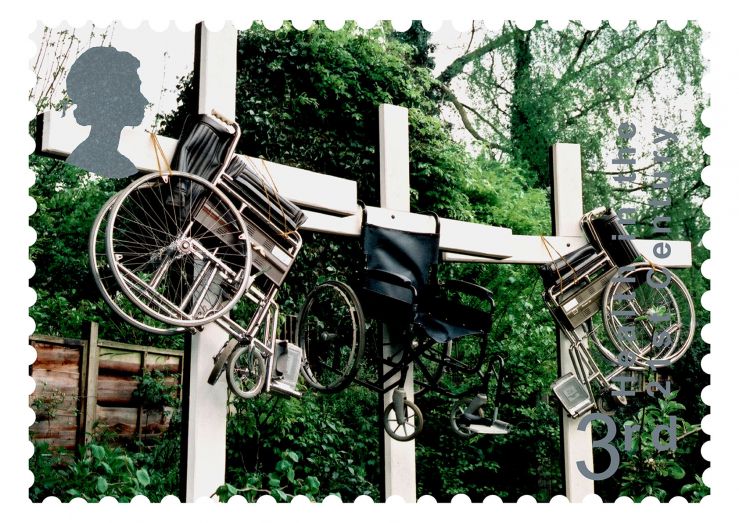
A Critique of comtempoary attitude toward Disabled people by Paul Darke
- Are You A Disable Artist ?- (AYADA) - Millenium Project 2000


